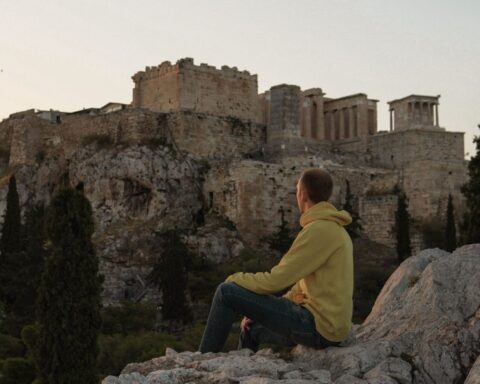By C. Don Adinuba
With the passing of Dr. Doyin Okupe on Thursday, March 7, Nigeria has lost a pan-Nigerian politician and twice a presidential spokesman. Okupe, who died of cancer at 72 in a Lagos hospital, was a man free of the primordial tendencies that have long hindered Nigeria from achieving its full potential despite its vast resources.
Though he and Chief Moshood K.O. Abiola, the Social Democratic Party (SDP) presidential candidate in the June 12, 1993 election, hailed from Ogun State, the National Republican Convention (NRC) candidate, Bashir Tofa, had no difficulty assigning him a highly trusted role—serving as the NRC’s chief party agent. In this capacity, Okupe was responsible for certifying the overall election results. This was a time when ethnic, regional, religious, and other primordial considerations had not yet fully overtaken Nigerian politics, governance, and even personal relationships.
Yet, when the Ibrahim Babangida military regime annulled the election, Okupe, guided by his strong sense of justice, issued a statement declaring Abiola the winner and condemning the military junta for its decision—a move that pushed Nigeria to the brink of crisis. Many Lagosians were impressed by his courage and began gathering in large numbers at his residence, 21 Sere Close in Ilupeju, Lagos, a stone’s throw from my own home. These gatherings became almost a daily ritual, and on occasion, I found myself leading prayers for the official release of the June 12 election results and karma for the annullers.
When the Sani Abacha dictatorship began cracking down on the Yoruba for their relentless opposition to the election annulment and their resistance to his rule, Okupe perceived an existential threat to his people. He and Dr. Fredrick Fasheun, another medical doctor, co-founded the Oodua People’s Congress (OPC). Okupe’s star role in the emergence of the OPC remains unknown to most Nigerians. Ironically, under Gani Adams, the OPC later became a thorn in the side of the Obasanjo administration in its early years. This led Okupe to commission Tayo Adesina, then a senior history lecturer at the University of Ibadan, and me to do a study on how to transform the OPC into a non-violent organization.
With the transition to democracy in 1999 under the Abdulsalami Abubakar regime, Okupe joined the Peoples Democratic Party (PDP), primarily in support of Olusegun Obasanjo’s presidential bid. Though I was a committed supporter of Alex Ekwueme, Obasanjo’s main rival for the ticket, Okupe and I enjoyed an excellent relationship.
Many journalists were surprised when Obasanjo, upon assuming office on May 29, 1999, appointed Okupe, a medical doctor, his Special Assistant on Media Affairs—a position traditionally reserved for seasoned communication professionals. I naturally defended him, citing Pope John Paul II, whose widely acclaimed global media reputation was managed by his press secretary, Joaquín Navarro-Valls, a Spanish psychiatrist. I also referenced Cyprian Ekwensi, the pharmacist and novelist who played a crucial role as a Biafran propagandist during the Nigerian Civil War and later managed the government-owned Renaissance newspapers in Enugu in the 1970s. Ekwensi’s brilliance was also evident in the implementation of the War Against Indiscipline (WAI) campaign under the Federal Ministry of Information and Culture in the 1980s, led by Group Captain Emeka Omeruah.
Okupe had always craved publicity roles, obviously to compensate for his inability to study English or communication at the university. At Igbobi College, Lagos, he excelled in the arts more than the sciences and aspired to be a writer. However, his elder sister, a medical doctor with a strong influence over him, discouraged the idea. She once drove him to a theatre, pointed to some haggard-looking individuals, and told him, “These hungry people are artists. Do you still want to be like them?” That’s how found himself in medical school at the University of Ibadan, where he forged a lifelong bond with people like Dr. Seyi Roberts.
In the mid-1980s, Okupe led the Lagos branch of the Nigerian Medical Association’s (NMA) committee on HIV/AIDS—largely because it involved extensive public communication. He later served as the national publicity secretary of the Liberal Convention, a political party in the late 1980s, and eventually became the NRC’s national publicity secretary. This role saw him write a weekly column in Sunday Times, where he shared the same page with Ojo Maduekwe, who was then the special assistant to the SDP’s national chairman, Babagana Kingibe. Okupe relished his debates with Maduekwe, a brilliant lawyer who later became a minister under Obasanjo. Despite their political rivalry, the two men maintained a deep mutual respect. On Okupe’s 40th birthday, Maduekwe delivered a glowing tribute to him.
Okupe brought dignity and influence to the office of the presidential press secretary. He was an astute political strategist and a most valuable asset. to many seeking political favors. Among those who gained access to him through me were Dr. Chris Ngige, who later became a highly effective governor of Anambra State, and Prince Yormie Johnson, the Liberian warlord who executed President Samuel Doe in 1990 and served as a senator in Liberia until his death in November 2023 at age 72.
A man of the people, his Abuja residence was always bustling with visitors from all parts of Nigeria. Shortly after the Obasanjo administration took office, he and his wife, Lola, insisted that I stay with them during a visit from Lagos. As all the rooms were already occupied, they suggested I share their bed. When one of the guests failed to return that night, I had to share a room with a Customs officer married to the sister of Okupe’s wife.
Okupe was pained to learn that my village in Ihiala in Anambra State lacked electricity access due to the previous roles of some individuals. The very next day, he wrote a letter to the National Electric Power Authority (NEPA)Managing Director asking him to address the problem immediately .immediate action. NEPA responded promptly, and in gratitude, my community honored him with the chieftaincy title of Nwanne Di N’Mba of Umuezeawala, Ihiala, on December 31, 2000. Though he was unable to attend the ceremony, he was over the moon when the regalia and accoutrements were presented to him in his Lagos residence. His family, including his aged mother who had travelled from Iperu, Ogun State, was present. She addressed my people in fluent Igbo, fondly recalling her school days in Onitsha.
A fervent believer in Nigeria’s unity, Okupe was proud that his daughter married an Igbo man. His offices, both in the private and public sectors, always had Igbo employees. He often delighted in showing off to his Igbo visitors someone from the Southwest popularly known as Alhaji who scored an A1 in Igbo in his West African School Certificate Examination as a student of St. Patrick’s Secondary School, Emene, Enugu; he married an Igbo woman from Awo-Omamma in Imo State. He was also pleased when I gave his son, Bolu, the popular Igbo name Emeka at birth.
I remember my first meeting with Okupe vividly. It was in December 1985 in the beautiful Samuel Shonibare Estate in Maryland, Lagos. I was in Lagos to explore job opportunities after my newspaper in Enugu had, for all practical purposes, collapsed. Okey Ndibe, then with The Guardian, and I visited Nnamdi Obasi and Chike Akabogu, members of Concord newspaper’s editorial board, and they suggested that we meet Okupe to discuss politics and a health newspaper he was setting up. Though I barely spoke at the meeting, he gave me a big envelope.
Months later, when I relocated to Ilupeju, who else but OmoOba Doyin Okupe moved from Shonibare Estate to a street near mine, unaware of my presence in Ilupeju? Thus began our enduring friendship, with his siblings, especially Wemi, Lanre, and Owo, becoming like brothers to me.
Nigeria has lost a true patriot in Dr. Okupe. He was a Nigerian Original. May God grant his soul eternal rest.



























